Meet Your SJC Faculty
Share
New Student Orientation is the perfect time to begin introducing our excellent faculty to those who may not know them yet. Meet Your SJC Faculty will become an ongoing series on mySJC and social media throughout the year, so check back every few weeks for more profiles!
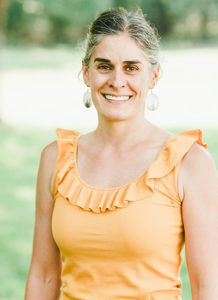 Camilla Bridge – Biology & Environmental Health
Camilla Bridge – Biology & Environmental Health
Favorite course to teach: BI-209 Public Health in a Developing Country
Advising approach: I love connecting my students with alumni who have successfully navigated their way to fulfilling careers.
Fun Fact: I was once impaled by bald eagle talons while doing fieldwork.
Best aspect of SJC: I am a faculty leader for our International Service Trip Program. This eye-opening experience is one of the most rewarding parts of my job because I get to see firsthand how it changes students’ perceptions of the world and how it empowers them to be positive contributors to communities that need them most.
Unforgettable teaching experience: There have been lots of unforgettable moments during my time at SJC. I think one that stands out happened two years ago on our last service trip. Bobby Michaud was one of my very first students when I began teaching at SJC 12 years ago. His exuberant personality, contagious smile, zest for learning, and unflappable joy for life define who he is. Bobby came to Saint Joe’s to study biology and psychology and during his time here, participated in a service trip to Guatemala. Here, he met Marcos, a little boy who helped haul cinder blocks to the emergency house we were building for his family. While helping, Marcos fell and injured his arm. Bobby scooped Marcos up and ran with him to the clinic, about a mile away. Bobby describes feeling helpless because he couldn’t do more to help Marcos and it was in the midst of this helplessness that his motivation to become a doctor was solidified. This experience actually became the focus of Bobby’s medical school admission essay to Tufts University. Bobby is now a Doctor of Medicine and Master of Public Health but I think the thing I admire most about him is his heart, which was touched by a little boy named Marcos who lives in extreme poverty. Bobby chose to make helping those in need his life’s work and that is truly admirable. In December of 2019, Bobby once again came on a Saint Joe’s service trip – this time as a team leader. He was able to track down Marcos and tell him how their encounter became Bobby’s motivation to study medicine. Watching this touching reunion was a moment I will always remember.
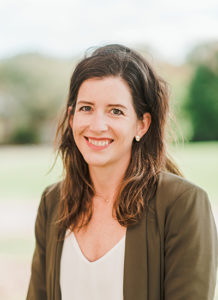 Caitlin Eldridge – Social Work
Caitlin Eldridge – Social Work
Favorite course to teach: SW 402 Social Welfare Policy and Services
Advising approach: The most important part of being an advisor is building a relationship with each student. Once we’ve developed that strong foundation, we can navigate opportunities and challenges together.
Fun Fact: I am a fifth-generation Mainer!
Your area of expertise: Non-profit management, social service workforce development, social welfare policy development and advocacy
Favorite aspect of teaching: Witnessing the process of students finding their passion. In the Social Policy course, students often start out wondering what they’ve gotten themselves into, because we talk about some really significant social problems and it can feel overwhelming. But over time, through lots of discussion and coursework and internship hours and critical thinking, you can see students start to get fired up about the issues that are important to them. They start to ask more questions, to research things on their own, and challenge some of the narratives that they’ve always heard. So that part, for me, is the most exciting.
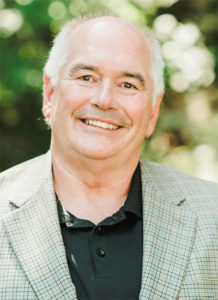 John Kenneally – Business Administration
John Kenneally – Business Administration
Favorite course to teach: MK 307 Customer Service and SE 305 Sport & Recreation Marketing
Advising approach: It is my job to help students set themselves up for success.
Fun Fact: I am deeply interested in the emerging business topic of “coopetition”, which involves simultaneously competing and collaborating.
Unforgettable teaching moment: My most cherished memory comes from a student who showed great potential but was not a high achiever on the academic side of things. He is now a vice president at a Fortune 500 company. During school, he had a rough end-of-semester, and I chased after him to complete a project, giving him a second chance on a deadline he had missed. A couple of years after graduating, he invited me to his wedding. At his wedding, he pulled me aside and told me that if I hadn’t given him that one last chance, he never would have married this incredible woman or earned this amazing job. I love helping people find the best in themselves and live their best life.
⇒ More about Business Administration
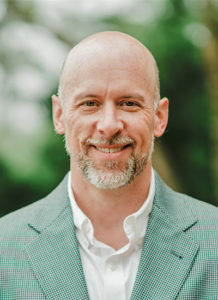 Chris Callaway – Philosophy
Chris Callaway – Philosophy
Favorite course to teach: PH 302 Philosophy of Knowledge
Fun Fact: In Junior High I lived on a tiny island in the middle of the Pacific Ocean.
Research: Professor Callaway’s research thus far has largely been in political philosophy, ethics, and philosophy of religion, and especially the overlap between these areas. He is also interested in the connections between philosophy and the sciences.
Unforgettable SJC experience: Leading a group of Honors students on a trip to Ireland
Why you should consider taking a philosophy course: I would recommend taking a philosophy class for several reasons. It gives you a rigorous intellectual workout, it gives you a chance to explore truths and values that have ultimate significance, and it will provide you with a set of challenging questions that you can think about for the rest of your life. It’s part of what makes the Catholic tradition of higher education distinctive: college is supposed to give you far more than job preparation; it’s supposed to introduce you to the great achievements, ideas, discoveries, and questions that smart people have been talking about in a centuries-long conversation so that you can become a more thoughtful and interesting and knowledgeable person. You should not settle for anything less.
⇒ More about Academic Programs
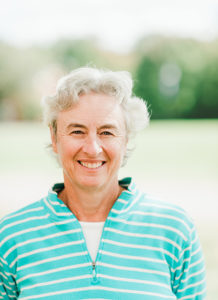 Karen Croteau – Sport and Exercise Science
Karen Croteau – Sport and Exercise Science
Favorite course to teach: HE 303 Fitness & Wellness Coaching
Advising approach: We’ll work as a goal oriented team to identify entry-level jobs and graduate programs and put the steps in place to get you there.
Fun Fact: I still play field hockey at the Masters level and represented the U.S. in the 2018 World Cup in Barcelona, Spain (and hopefully in the 2022 World Cup in Cape Town, South Africa).
Unforgettable teaching experience: Having all 11 students in HWP/PreOT that applied to grad school get in.
⇒ More about Sport & Recreational Management
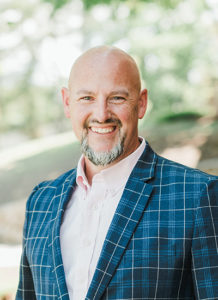 Dale Brooker – Leadership for Sustainable Development
Dale Brooker – Leadership for Sustainable Development
Favorite course to teach: CJ315 The Study & Practice of Justice
Unforgettable teaching experience: My first ever teaching experience was in the Texas Prison System where I taught people who were incarcerated college level courses in sociology. Many of these individuals did not even have a high school diploma before entering the criminal justice system. They were heavily invested in their learning and the courses they took allowed them to be students for three hours a week instead of an inmate and further allowed them to see that education could be a critical factor in their reentry process after being released
Why I love teaching Criminal Justice: Criminal justice courses allow students to understand how the criminal justice system functions, it provides students with a critical perspective on issues related to the field (gun violence, drug overdoses, human trafficking, to name a few) and exposes students to possible career pathways and graduate school opportunities connected to the field of criminal justice. As for courses that criminal justice students might take, I think an PY101: Introduction to Psychology is a great compliment to our CJ307: Criminology course. These courses allow students to examine the various theories surrounding why people engage in criminal behavior and how this impacts the response from the criminal justice system and the community.
What is the Leadership for Sustainable Development program and why would you recommend it to a new student: The Leadership for Sustainable Development program is a unique, interdisciplinary-focused, engaged set of courses and experiences that allow students to critically examine a variety of critical community concerns and social problems (injustices across social systems, climate change, healthcare inequality, economic inequality) and how (as a society) we respond to them. We consider our own role in advocating for and leading initiatives that help make our world more sustainable and just. As students become involved in this program, they are exposed to experiences (by way of high impact practices, internships, apprenticeships and community based learning experiences) that help them become leaders, advocates, influencers and voices for social change within their local community, their home state, our nation and the larger global community. Students involved in this program are well prepared for graduate school and careers in government, nonprofit and for-profit organizations.
⇒ More about Leadership for Sustainable Development
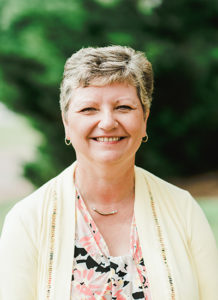 Kelly Hudock – Nursing
Kelly Hudock – Nursing
Favorite course to teach: NU 212 Pharmacology
Advising approach: I believe in being open and honest with students even if it is something that they might not want to hear.
Fun Fact: I’ve worked in a variety of clinical settings, including private practice, nursing home, palliative care/hospice, long-term care/subacute care, and retail health care, but always came back to my first love- geriatrics.
The Reason I chose Nursing: Anytime patients tell me that I changed something for the better in their lives brings such meaning to your professional career. Just that simple ‘thank you for making a difference’ makes all the difference in the world.
One of my favorite teaching moments: Years ago when I taught LPN students, this was before simulation was such a staple in nursing education, we created our own kind of simulation. We focused on medication calculations for the day. Because I was a NP at the time, I would give the orders and the students would need to figure out the dosage or the drip rate if it was an IV. We changed things up at the last minute with new orders and had the students scrambling to recalculate. It really simulated what it might be like on a regular hospital unit.

